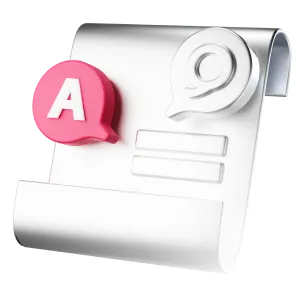Question: I went to start my car this morning and I couldn’t press the brake to start it. I think the brakes are locked or something and I don’t know why. What do I do if my brakes are locked and my car won’t start?
Answer: In many modern vehicles, you have to press down on the brake pedal to start the car, so if you can’t depress the brake, you could be left stranded. But don’t panic just yet—some of the fixes for this issue are super easy.
Here are a few reasons your brake pedal is hard to push down and your car won’t start:
Obstructed brake pedal
Problem: Your floor mats or other objects can sometimes slide behind the brake pedal. If they’re positioned up in a way that keeps the brake pedal from depressing, it could feel like your brakes have locked up.
Fix: Check your floorboard to see if your floor mats or anything else has gotten trapped behind the brake pedal.
Exhausted brake vacuum
Problem: Most modern cars have power assist, which relies on a brake vacuum to operate. If you pushed on the brake pedals without the engine running, it could have exhausted the reserve vacuum, causing the brake to go stiff. However, a leaking vacuum hose could also contribute to this problem.
Fix: Leave the brakes alone for a few minutes and then start your car. If the brake vacuum was depleted because you pressed the brake pedal with the car off, your brakes should go back to normal once they have power assist. If the problem is a leaking vacuum, you’ll need a qualified mechanic.
Damaged ignition switch
Problem: If you have an older car, it could be that your ignition switch is going bad. If your ignition switch is going bad, your car may not start, and your lights, windows, and radio may not work.
Fix: Ignition switches are a very easy fix and pretty cheap, too. You can replace it yourself or hire a mechanic.
Faulty starter
Problem: Sometimes, your brakes can get stiff if your starter fails. If you’re hearing loud clicking sounds when you turn the key, this could be because your starter motor is dead or faulty.
Fix: If you’re comfortable working on your car’s battery, you can fix it yourself. Otherwise, hire a mechanic.
Rusted brake calipers
Problem: Sometimes your brake calipers can develop rust, which will stop them from moving properly. If your car requires you to push the brakes to start the engine, this can prevent your car from starting. This is most common if your car has been sitting up for a while or if you live somewhere very humid.
Fix: Have your brake calipers replaced by a qualified technician. If you’re an experienced at-home mechanic, you can do the job yourself—but be sure to bleed the brakes afterward to avoid air in your brake line.

Expert insurance writer and editor Amy Bobinger specializes in car repair, car maintenance, and car insurance. Amy is passionate about creating content that helps consumers navigate challenges related to car ownership and achieve financial success in areas relating to cars. Amy has over 10 years of writing and editing experience. After several years as a freelance writer, Amy spent four years as an editing fellow at WikiHow, where she co-authored over 600 articles on topics including car maintenance and home ownership. Since joining Jerry’s editorial team in 2022, Amy has edited over 2,500 articles on car insurance, state driving laws, and car repair and maintenance.

Kevin Berry is the Senior Director of Content at Jerry and has been working in the digital content space since 2011 across the car insurance/repair, personal finance, travel and sports industries. Prior to Jerry, Kevin was a content team lead at NerdWallet overseeing the Multimedia Production and Travel Rewards teams. Previously, he worked for NBC Sports, Comcast Cable and Nike. He has a Master`s Degree from Arkansas State and a Bachelor`s from Oregon State University.








